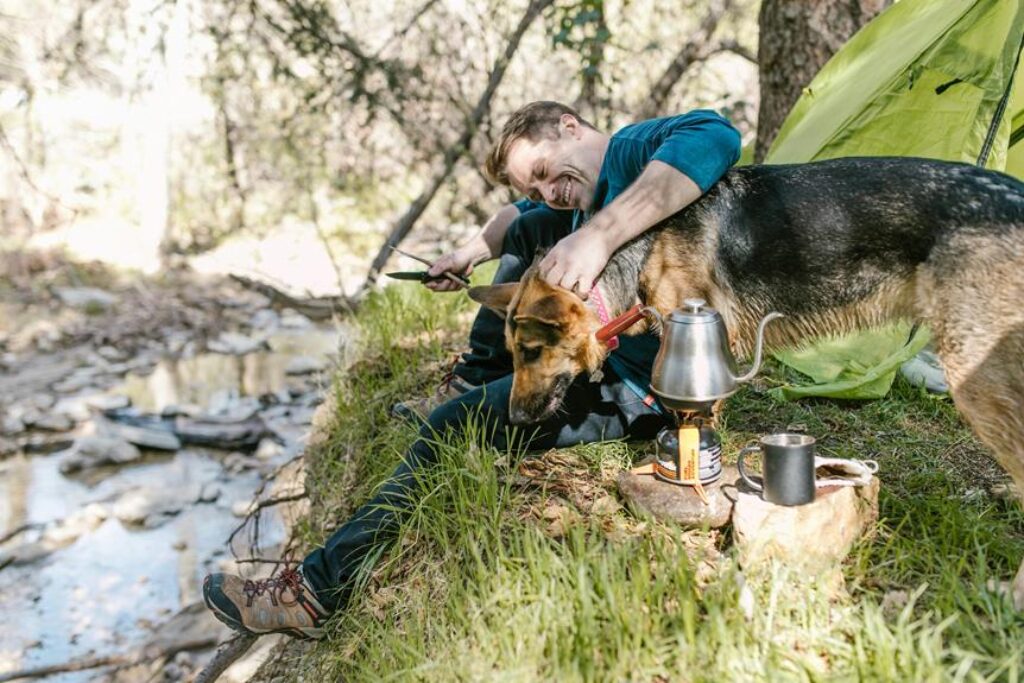
When venturing into the great outdoors, have you ever considered the impact of your actions on the environment? Embracing green initiatives as a camper or outdoor enthusiast is not only about preserving nature for future generations but also about creating a harmonious relationship with the wilderness. By incorporating sustainable practices and making conscious choices, you can significantly reduce your ecological footprint and contribute to the preservation of these natural wonders. But what exactly are these green initiatives, and how can they enhance your outdoor experiences? Let’s explore together.
Sustainable Camping Practices
When camping sustainably, always remember to leave no trace behind to preserve the natural environment. This means packing out all your trash, including food scraps and biodegradable items. By taking everything with you, you ensure that the ecosystem remains undisturbed and wildlife isn’t negatively impacted.
Another important sustainable camping practice is to use designated campsites whenever possible. These areas are specifically designed to minimize environmental impact, so sticking to established sites helps protect fragile ecosystems. Avoid creating new trails or campsites, as this can lead to soil erosion and disruption of plant life.
Additionally, when gathering firewood, only use fallen branches or wood found on the ground. Avoid cutting live trees or branches, as this can damage the local habitat. Remember to properly extinguish your campfire before leaving to prevent wildfires and preserve the surrounding vegetation.
Eco-Friendly Gear Choices
Consider choosing eco-friendly gear options to minimize your environmental impact while enjoying the outdoors. When selecting gear for your outdoor adventures, opt for products made from sustainable materials like recycled polyester, organic cotton, or bamboo. Look for companies that prioritize environmentally friendly practices in their production processes, such as using non-toxic dyes or minimizing water usage. Additionally, choose gear that’s durable and long-lasting to reduce the need for frequent replacements, ultimately decreasing waste.
Investing in multifunctional gear can also help minimize your environmental footprint. Choose items that serve multiple purposes to reduce the number of products you need to purchase and carry with you. For example, a versatile camping stove that can also charge electronic devices or a backpack that doubles as a solar charger can be practical and eco-friendly choices.
Waste Reduction Strategies
To further reduce your environmental impact while camping or enjoying the outdoors, implement waste reduction strategies that minimize the amount of trash you generate. Start by packing food in reusable containers and avoiding single-use plastics. Opt for products with minimal packaging or choose items with recyclable or compostable packaging. When cooking, plan meals to reduce food waste and bring a reusable water bottle instead of disposable ones.
Another waste reduction strategy is to practice Leave No Trace principles by packing out all your trash, including food scraps. Separate your recyclables and dispose of them properly when you return from your trip. Consider bringing a small bag for collecting any litter you may find along the way to leave the environment cleaner than you found it.
Furthermore, choose multi-purpose items to reduce the number of things you need to bring, which can also minimize waste. Repair gear instead of replacing it when possible to extend its lifespan. By being mindful of your waste and taking proactive steps to reduce it, you can enjoy the outdoors while preserving nature for future generations.
Water Conservation Tips
Implement water conservation practices by using a portable water filter to purify natural water sources for drinking while camping or hiking. This not only reduces the need for disposable plastic water bottles but also minimizes the strain on local water sources.
Additionally, consider taking shorter showers or using biodegradable wipes to clean yourself. When washing dishes, use a small basin to collect and reuse water, minimizing wastage. Be mindful of how much water you use for cooking and only boil what’s necessary to conserve this precious resource.
Another effective tip is to scout for campsites near natural water sources like rivers or lakes. This way, you can easily access water for cleaning, cooking, and drinking without needing to transport large quantities. Remember to respect these water bodies by not polluting them with soap, food scraps, or waste.
Lastly, encourage your camping companions to adopt these water-saving habits to make a more significant impact collectively. By being conscious of your water usage in the great outdoors, you can help preserve the environment for future generations of outdoor enthusiasts.
Camping














